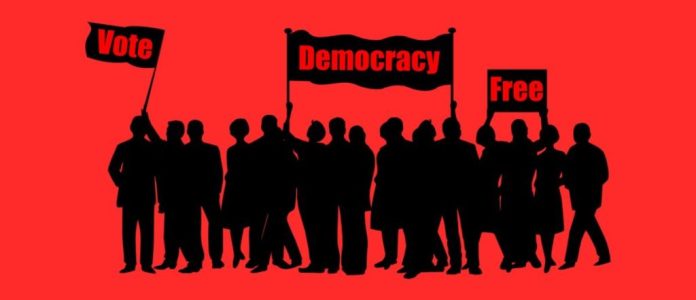Radiance Bureau
The robust framework of democracy that India proudly boasts of seems to be under severe strain, prompting a critical examination from the Muslim community. Recent events have cast a shadow on the democratic ethos enshrined in the Indian Constitution, raising concerns about the erosion of constitutional institutions and the emergence of autocratic tendencies.
The imposition of emergency rule in 1975 by then-Prime Minister Indira Gandhi left an indelible mark on the collective consciousness of the nation, particularly on minority communities like Muslims. The suspension of constitutional guarantees during that period served as a stark reminder of the fragility of democratic principles in the face of unchecked power.
In contemporary times, Muslims find themselves disproportionately targeted by state agencies, purportedly independent, such as the Central Bureau of Investigation (CBI), Enforcement Directorate (ED), and Income Tax Department. The media’s portrayal of Muslim leaders as inherently corrupt exacerbates existing prejudices and perpetuates a climate of discrimination.
Recent appointments to the Election Commission have raised eyebrows within the Muslim community, questioning the impartiality and transparency of the electoral process. Doubts linger regarding the qualifications of appointees and the fairness of the selection procedure, further eroding confidence in the democratic machinery.
For Muslims, democracy goes beyond the mere exercise of electoral processes; it encompasses the protection of fundamental rights and the equitable representation of all communities in the political landscape. However, the current political climate threatens to marginalize minority voices and undermine the pluralistic fabric of the nation.
As India approaches crucial Lok Sabha elections, Muslims emphasize the need for constitutional authorities and civil society to uphold democratic values and ensure a transparent electoral process. The legacy of leaders like B.R. Ambedkar, who advocated for social justice and inclusivity, serves as a guiding beacon in the quest to safeguard democratic principles in India.
The Muslim community stands united with other marginalized groups in their commitment to defending the essence of democracy and resisting the encroachment of autocratic tendencies. It is imperative that India reaffirms its commitment to democratic ideals and strives to create an inclusive society where every citizen’s rights are protected and respected.




